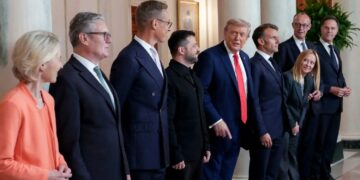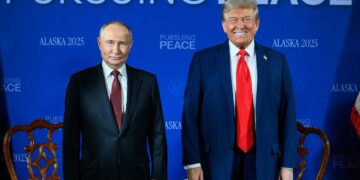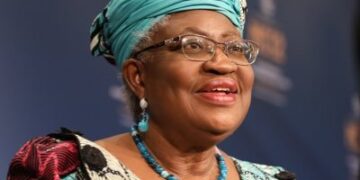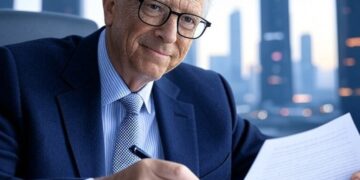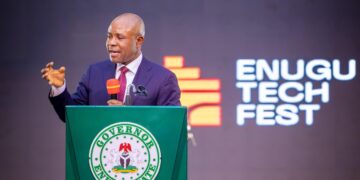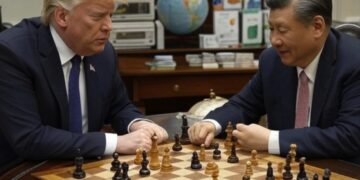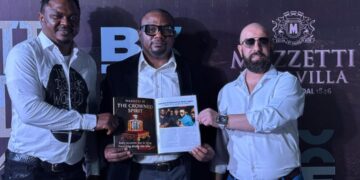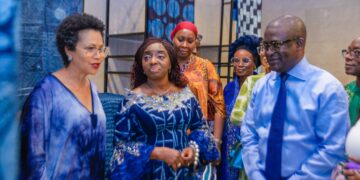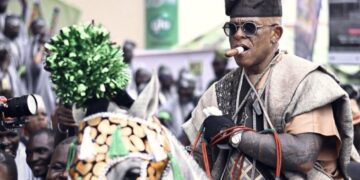LAGOS, Nigeria — Former presidential candidate and prominent Nigerian voice, Peter Obi, has once again sounded the alarm on Nigeria’s deepening leadership crisis, describing it as the nation’s most formidable barrier to development. In a passionate statement shared via his verified X account (@PeterObi), Obi emphasized that the persistent failure of leadership continues to stifle Nigeria’s potential, urging a radical shift toward competent, compassionate, and character-driven governance.
Obi’s remarks come amid growing concerns about Nigeria’s governance challenges, recently highlighted by the U.S. Diplomatic Mission in Nigeria. The mission’s statement, echoed in *The Africa Report* and shared on X (@usinnigeria), underscores the global attention Nigeria’s leadership woes have attracted. “The cumulative effect of poor leadership remains our greatest obstacle to development,” Obi stated, calling for an urgent disruption of the current system. “Until we confront it head-on, the country cannot move in the right direction.”
Quoting the late literary icon Chinua Achebe, Obi reiterated, “The trouble with Nigeria is simply and squarely a failure of leadership.” He criticized the stark contrast between the sacrifices demanded of citizens and the opulence of those in power, declaring, “You cannot ask the people to keep fasting while you feast every day.”
Obi’s call for a “New Nigeria” free of criminality and corruption has resonated with many, though it has also drawn backlash. He accused entrenched powers of deploying “media thugs” to distract from his message with insults and misinformation. “Now that the American government has made similar observations, perhaps they too will become targets,” he remarked, pointing to the U.S. statement to validate his long-standing critique.
The former Anambra State governor urged Nigerians to reject divisive voting patterns based on tribe and religion, advocating instead for leadership rooted in competence, capacity, and compassion. “We have voted based on tribe and religion for too long—it is time to vote for competence,” he said, calling for a shift from “waste, looting, and reckless borrowing to production.”
Obi’s vision for a reformed Nigeria includes dismantling systemic criminality and fostering a governance model prioritizing accountability and progress. “A New Nigeria is Possible,” he declared, rallying well-meaning Nigerians to join the push for transformative change.
As the nation grapples with economic hardship, insecurity, and declining public trust, Obi’s remarks have sparked renewed conversations about the urgent need for leadership reform. Stakeholders Magazine reached out to government officials for comment but received no response by press time.
The call for a new direction in Nigeria’s leadership comes at a critical juncture, with citizens and observers alike watching closely to see whether the nation can rise above its challenges and chart a path toward sustainable development.
Stakeholders Magazine is committed to fostering dialogue on Nigeria’s path to progress. For more insights, visit our website or follow us on X.
Obi’s remarks come amid growing concerns about Nigeria’s governance challenges, recently highlighted by the U.S. Diplomatic Mission in Nigeria. The mission’s statement, echoed in *The Africa Report* and shared on X (@usinnigeria), underscores the global attention Nigeria’s leadership woes have attracted. “The cumulative effect of poor leadership remains our greatest obstacle to development,” Obi stated, calling for an urgent disruption of the current system. “Until we confront it head-on, the country cannot move in the right direction.”
Quoting the late literary icon Chinua Achebe, Obi reiterated, “The trouble with Nigeria is simply and squarely a failure of leadership.” He criticized the stark contrast between the sacrifices demanded of citizens and the opulence of those in power, declaring, “You cannot ask the people to keep fasting while you feast every day.”
Obi’s call for a “New Nigeria” free of criminality and corruption has resonated with many, though it has also drawn backlash. He accused entrenched powers of deploying “media thugs” to distract from his message with insults and misinformation. “Now that the American government has made similar observations, perhaps they too will become targets,” he remarked, pointing to the U.S. statement to validate his long-standing critique.
The former Anambra State governor urged Nigerians to reject divisive voting patterns based on tribe and religion, advocating instead for leadership rooted in competence, capacity, and compassion. “We have voted based on tribe and religion for too long—it is time to vote for competence,” he said, calling for a shift from “waste, looting, and reckless borrowing to production.”
Obi’s vision for a reformed Nigeria includes dismantling systemic criminality and fostering a governance model prioritizing accountability and progress. “A New Nigeria is Possible,” he declared, rallying well-meaning Nigerians to join the push for transformative change.
As the nation grapples with economic hardship, insecurity, and declining public trust, Obi’s remarks have sparked renewed conversations about the urgent need for leadership reform. Stakeholders Magazine reached out to government officials for comment but received no response by press time.
The call for a new direction in Nigeria’s leadership comes at a critical juncture, with citizens and observers alike watching closely to see whether the nation can rise above its challenges and chart a path toward sustainable development.
Stakeholders Magazine is committed to fostering dialogue on Nigeria’s path to progress. For more insights, visit our website or follow us on X.





